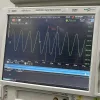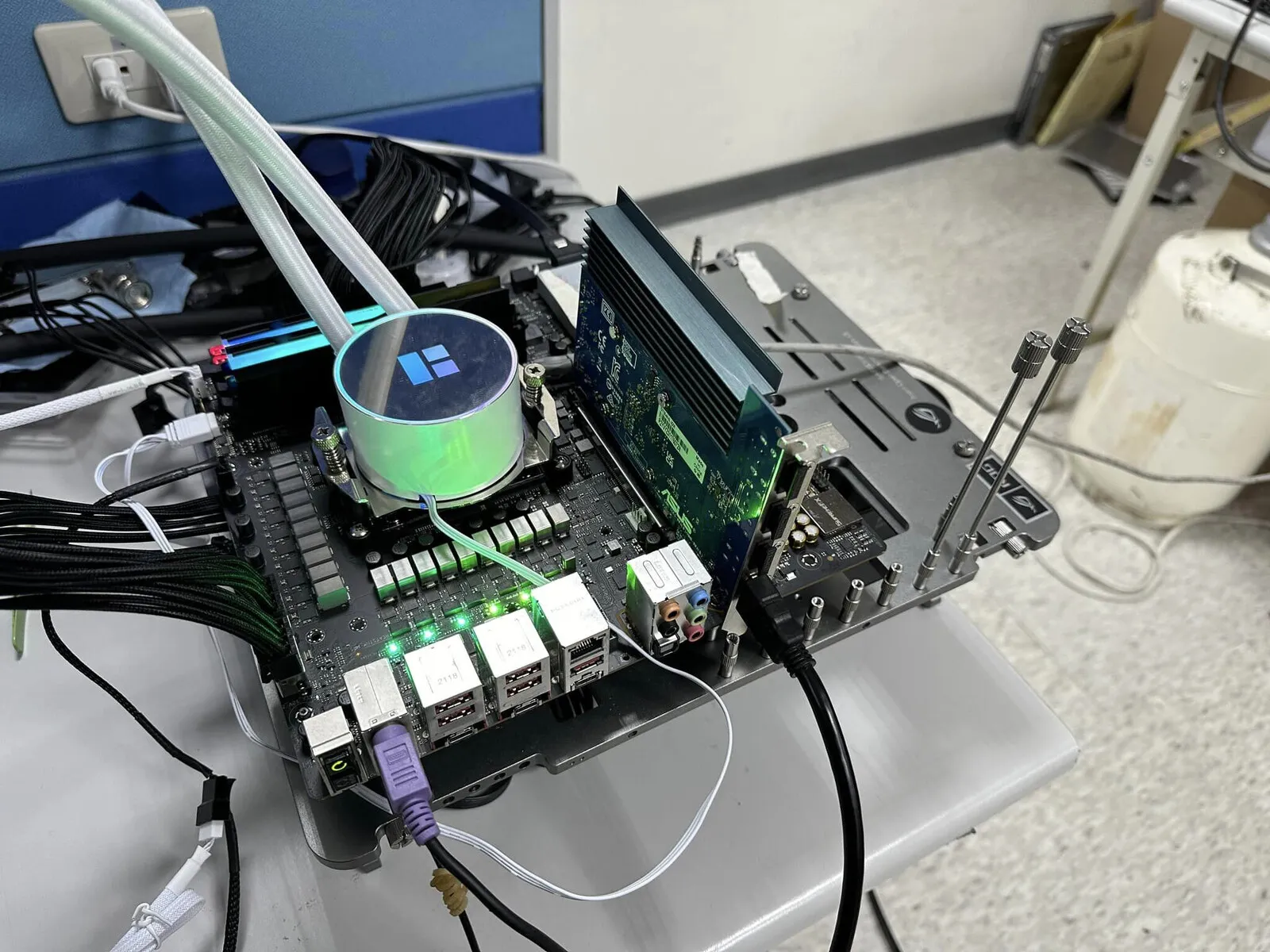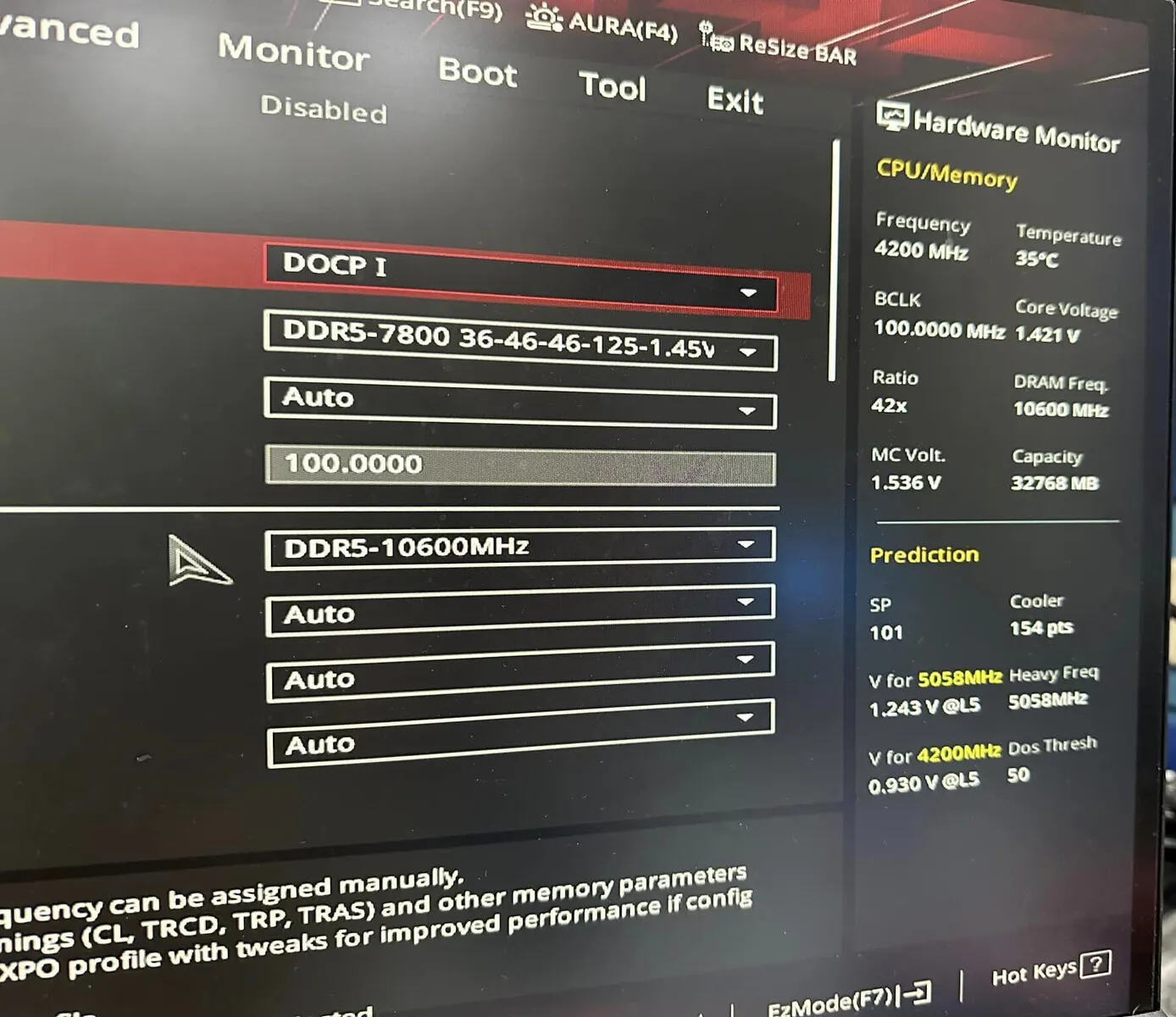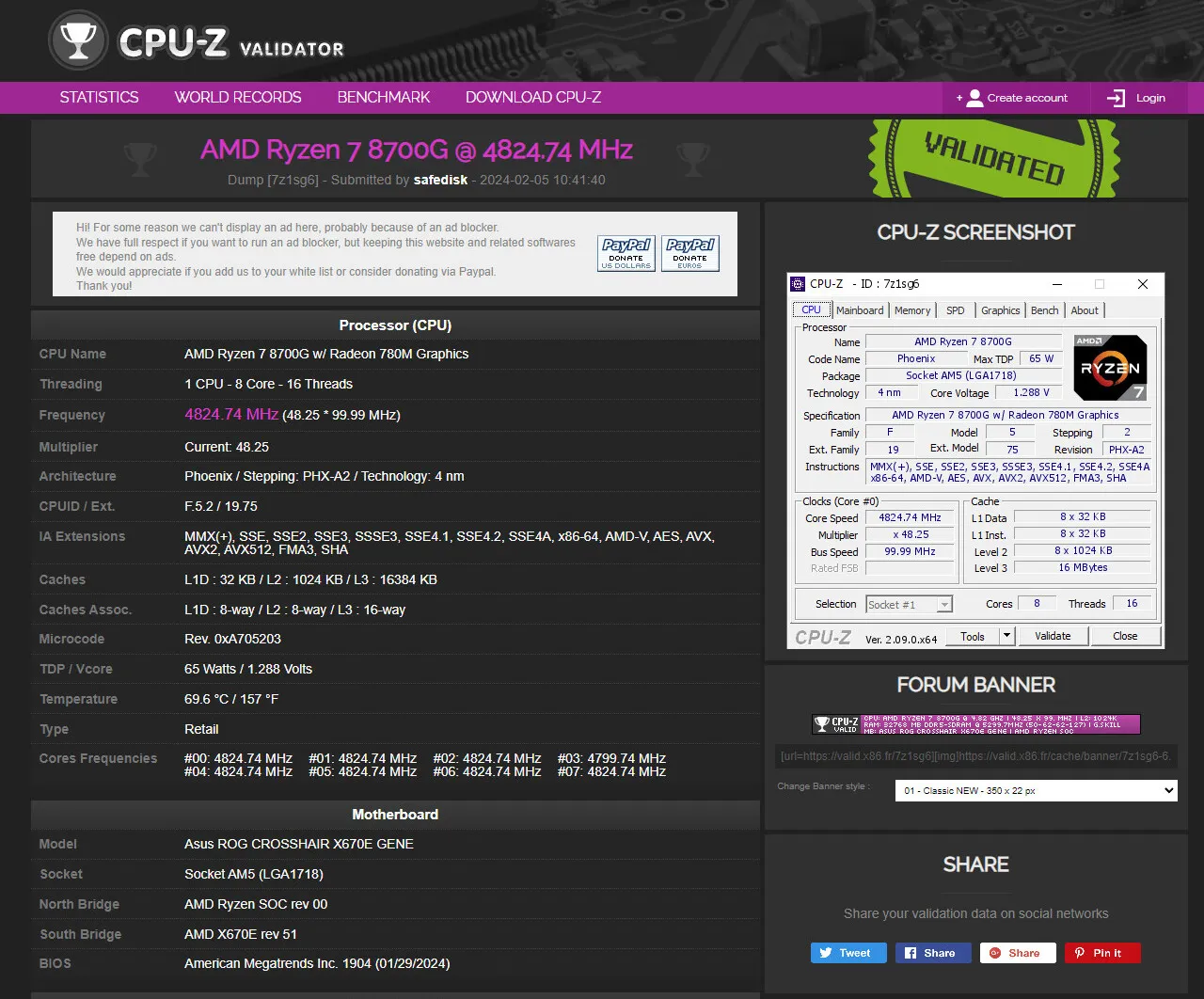The configuration used for this testing comprised the mentioned APU and motherboard, along with a Thermalright AIO cooling system, G.Skill Trident Z5 DIMMs, and an ASUS GeForce GT 730 2 GB Silent graphics card. Notably, SafeDisk opted to remove the VRM heatsinks from the motherboard for this test. The memory modules were set to their factory speed of 7800 MT/s at 1.45V, with SafeDisk achieving the DDR5-10600 speed using specific timings of 50-62-62-127-127. It was reported that the system could boot directly into the operating system, with the overclocking process described as straightforward.
Regarding the technical adjustments, SafeDisk confirmed no Base Clock (BCLK) modifications were made during the test. The accuracy of the memory clock speed was verified using external equipment. A noteworthy point raised by Wccftech pertains to the latest AGESA BIOS firmware, which was suspected to display incorrect DDR5 memory clock speeds due to a potential bug. However, this was invalidated through the use of an oscilloscope and adjustments to the BIOS's EX-clock (BCLK) settings, which confirmed the authenticity of SafeDisk's results. The BIOS firmware issue, specifically with AGESA version 1.1.0.2b, mainly affects the Ryzen 8000G APU family and relates to optimized support.
Sources: SafeDisk, Valid X86 Entry





